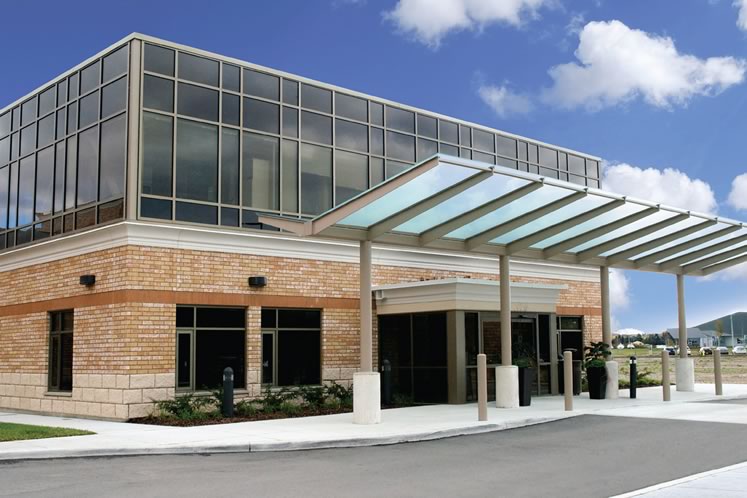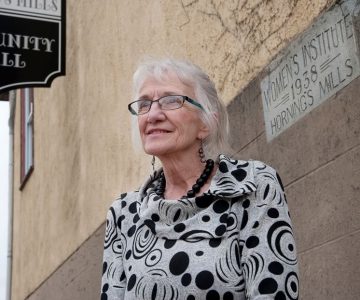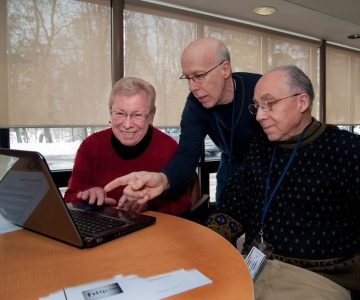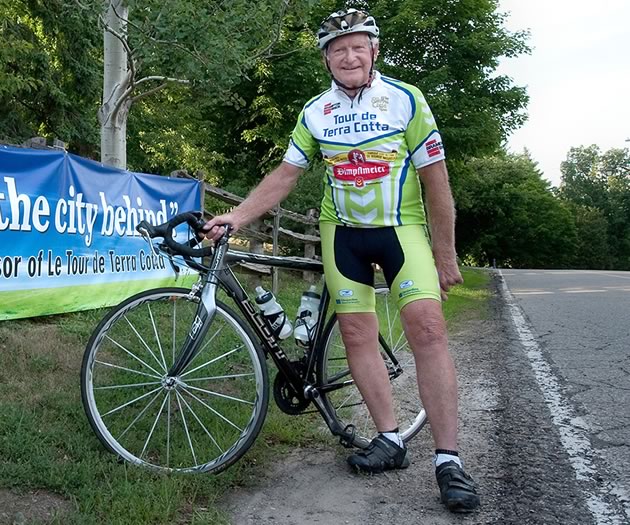Older Could Be Better
The Research Institute for Aging works to improve quality of life for seniors.
When Caledon mayor Allan Thompson organized a bus trip to Waterloo last fall, I was pleased to be offered a seat. Members of the town’s Seniors’ Task Force, a few planning department and Region of Peel employees, and a handful of local activists filled the bus. Hoping to encourage the group to zero in on Caledon’s long-term needs and initiate action, the mayor was providing us with an opportunity to see what’s out there for seniors.
The itinerary included a tour of the Village at University Gates, a state-of-the-art, purpose-built seniors’ long-term care facility owned and operated by Schlegel Villages, as well as the adjacent nonprofit Research Institute for Aging. Both the long-term care residence, home to 192 people, and the RIA are part of a planned three-phase complex located on the north campus of the University of Waterloo.
Our first stop was the bustling common areas of The Village at University Gates. The craft room was busy with crafting and chatting women, the card room and pub were active, and the theatre area was being set up for a forthcoming performance. We passed a chapel, a clinic staffed by three full-time doctors, a pharmacy, a library and even a general store.
Next to the residence, the Research Institute for Aging is housed in a modern building featuring research, learning and social spaces. Together these two structures were designed to encourage older adults, educators, students and research scientists to mingle.
The RIA bills itself as the Centre of Excellence for Innovation in Aging and is a joint project of Schlegel Villages, owned by the Schlegel family of Kitchener, the University of Waterloo and Conestoga College. Its goal is to transform the way Canadians age, and from what I could see, it’s making huge strides in that direction.
The RIA team consists of nine research chairs, four research specialists and 22 affiliate researchers. Here, older adults live, researchers explore and students learn in an energized, collaborative environment.
Construction of phase two, a 10-storey retirement home and town square, began in December 2017. A mid-rise retirement home will complete the project sometime in the next few years.
Brenda Elias, a Caledon gerontologist who has been learning and working in the field for 45 years, has watched the development of the RIA since its inception in 2005. “The centre recognizes several different requirements of care, but from my viewpoint its work on aging and memory is exemplary. With its huge team of scientists exploring a multitude of aging facets on one site and sharing findings with the greater community, the benefits for older adults are universal, regardless of where they are living,” she said. “The RIA is well on its way to becoming world-renowned.”
Areas of specific study vary tremendously, but a few that caught my attention were nutrition, the increased use of medications as we age, and changes in the scientific thinking related to the cognitive functions associated with aging.
Heather Keller, the RIA chair in nutrition and aging, has expanded her research by studying not only the specific nutritional needs of aging adults, but also how the entire mealtime experience plays a role in how well people eat.
Physician specialist Joanne Ho is studying how the routine use of multiple prescription medications for the chronic afflictions of aging can both help and hurt health management. She is developing interventions to mitigate adverse drug effects that might lead to such consequences as cognitive impairment, falls and hospital visits.
And internist and geriatrician Allen Power, who holds the chair in aging and dementia innovation, is advocating a collaborative, more holistic approach to supporting older adults, particularly those living with dementia. His work is paving the way for better practices, policies and programs within the ever-changing landscape of the aging process.

Waterloo’s shiny new Research Institute for Aging is a beacon of hope as older adults struggle to preserve their well-being. (Photo courtesy RIA.)
Just before noon on the day of our visit, we met Richard Hughson, who was heading home after a long day at the office. His days start when most of us are getting our best sleep. Hughson, who is chair of vascular aging and brain health and senior director of research, is in regular contact with astronauts living on the International Space Station where, as a function of space travel, the aging process is accelerated. His focus is on age-related vascular changes and how they affect motor and cognitive abilities. By studying the astronauts he is expanding understanding of the aging process here on Earth.
Since my visit, the RIA has become a brain worm. Things I saw and learned that day keep wriggling around in my mind, but the major recurring thought is that our age group is in good hands. Bright, well-educated, compassionate people are paying attention to what’s going on in our lives.
Related Stories

Debbie Fawcett
Jun 19, 2018 | | Over the Next HillDebbie Fawcett, a longtime municipal politician, championed the restoration of Horning’s Mills community hall.

Help for the Tech Challenged
Mar 26, 2018 | | Over the Next HillKen’s students often bring their own computers to class, only to discover hardware or software problems.

Russ Brown
Sep 16, 2017 | | Over the Next HillThis past summer, with minimal assistance and working from a low chair, Russ created a flourishing tomato garden at Abbeyfield, turning over the sod, removing rocks and adding peat, fertilizer and wire cages for the plants.

Ted Webb
Sep 16, 2016 | | Over the Next HillThe kindness of a Canadian soldier inspired a young Ted Webb to immigrate here. An avid cyclist, he later founded Le Tour de Terra Cotta.








